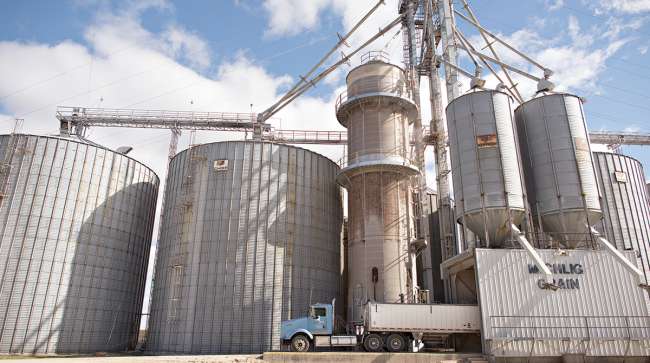White House Plans Biofuel Quota Boost to Offset Refinery Waivers

[Stay on top of transportation news: Get TTNews in your inbox.]
President Donald Trump has tentatively agreed to a plan for bolstering ethanol and biodiesel, amid pressure from Midwest U.S. senators who warned the president that without action, he risks votes in next year’s election.
The blueprint discussed in a meeting at the White House calls for the administration to make up for three years’ worth of waived biofuel quotas tied to the Environmental Protection Agency’s decision to exempt some oil refineries from annual blending requirements. That comes on top of other concessions that administration officials had already developed with the aim of encouraging greater U.S. demand for ethanol made from corn.

In our first episode of RoadSigns, Season Three, we ask: How Can Trucking Take Fuel Economy to the Next Level? Hear a snippet from host Seth Clevenger, above, and get the full program by going to RoadSigns.TTNews.com.
The draft plan was described by people familiar with the matter who asked for anonymity because the deliberations are private. The deal could still unravel, as oil companies and allied senators seek to influence the final outcome and administration officials work to translate broad commitments into formal regulations.
Green Plains Inc., a U.S. ethanol producer, tempered its losses after Bloomberg reported the White House deliberations. The shares fell as much as 4.9%, to $10.36, before recovering to $10.62 as of 1:16 p.m. EDT. Renewable Energy Group Inc., one of the largest U.S. biodiesel producers, erased earlier losses, gaining 0.8% to $15.46. Pacific Ethanol Inc. also tempered an earlier decline, rising to 75.61 cents a share.
Reallocating Quotas
If the deal becomes final, the administration would begin reallocating waived quotas over multiple years, starting with 2020 targets.
There is a narrow window for the Trump administration to codify the package of changes. The EPA is legally required to finalize 2020 biofuel-blending targets by Nov. 30, and any new, supplementary proposal must be submitted for public comment first.
The plan was hashed out by Trump, a representative of Archer-Daniels Midland Co. and senators from corn-growing and ethanol-producing states in a meeting at the White House on Sept. 12. For weeks, the Trump administration has been trying to develop a plan for soothing a backlash in the Midwest U.S. over the oil refinery waivers, amid concerns it could hurt Trump’s re-election chances in Iowa and other politically important farm states.
The blueprint risks alienating oil refining interests, including a group of senators that are asking Trump not to boost biofuel quotas or offset refinery waivers. The move would have the effect of putting non-exempted refineries on the hook for fulfilling waived quotas, driving “more imports of foreign biodiesel, steeper trade deficits, higher compliance costs for domestic refiners and fewer jobs in our states,” they told Trump in a letter.
The Republican senators, including Ted Cruz of Texas and Pat Toomey of Pennsylvania, are seeking to press the case personally with Trump.




